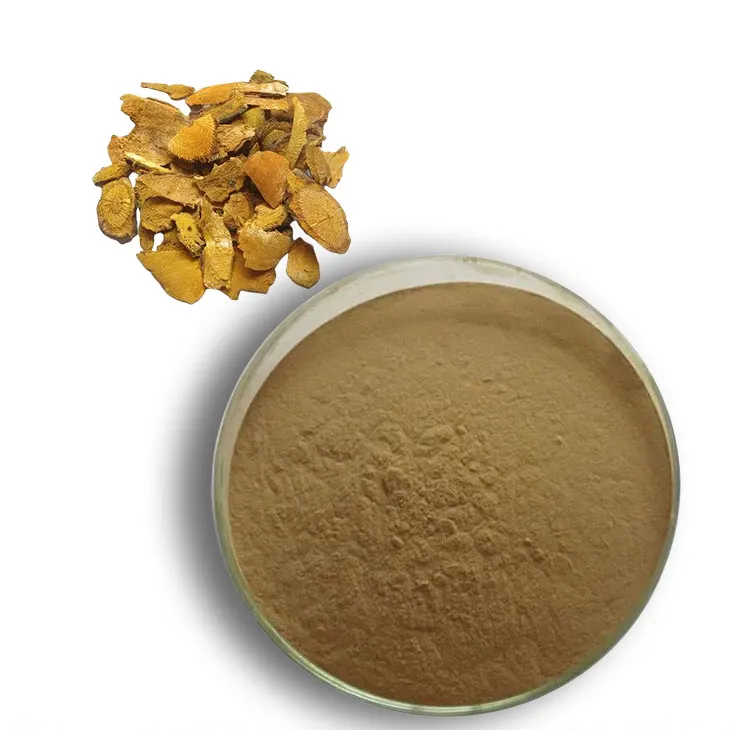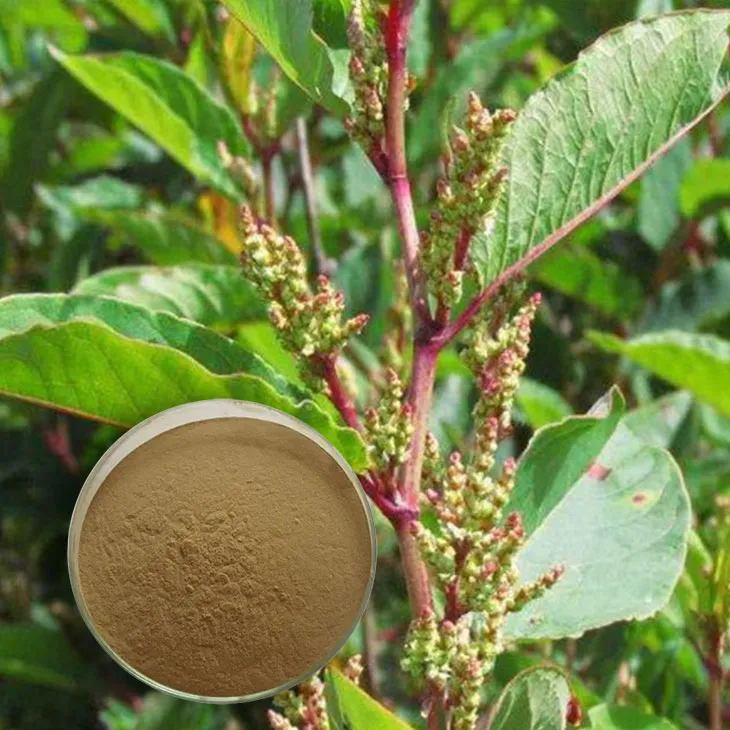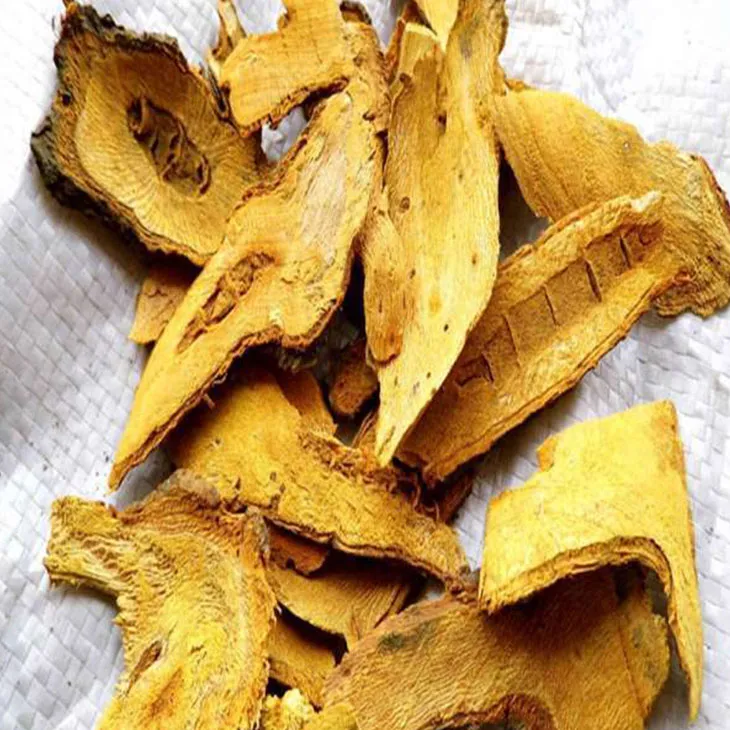- 0086-571-85302990
- sales@greenskybio.com
Benefits of Polygonum cuspidatum Extract in Cattle Feed.
2024-11-13

1. Introduction
In the field of livestock farming, the quality of feed plays a crucial role in the growth, health, and productivity of cattle. Polygonum Cuspidatum Extract has emerged as a potential additive in cattle feed, offering a variety of benefits. This extract is derived from the Polygonum cuspidatum plant, which is rich in bioactive compounds. Understanding these benefits can help farmers improve their cattle rearing practices and enhance the overall quality of beef production.

2. Immune System Enhancement
Strengthening the Immune Defense One of the most significant benefits of including Polygonum Cuspidatum Extract in cattle feed is its positive impact on the immune system of cattle. The extract contains bioactive components that have immunomodulatory properties. These components can directly stimulate the immune cells present in the body of the cattle. For example, certain compounds in the extract can enhance the activity of macrophages, which are key immune cells responsible for engulfing and destroying pathogens.
Disease Resistance By strengthening the immune system, cattle are better equipped to defend against diseases. In a farming environment, cattle are exposed to a variety of pathogens, including bacteria, viruses, and parasites. A robust immune system can prevent the occurrence of common diseases such as bovine respiratory disease and bovine diarrhea. This not only reduces the need for antibiotics and other medications but also improves the overall well - being of the cattle.

3. Influence on Rumen Microbiota
Promoting Beneficial Bacteria Growth The rumen is an important part of the cattle's digestive system, and the microbiota present in it plays a vital role in the digestion and utilization of feed. Polygonum Cuspidatum Extract can influence the rumen microbiota in a favorable way. It contains substances that can selectively promote the growth of beneficial bacteria in the rumen. For instance, some components may act as prebiotics, providing a substrate for the growth of bacteria such as Fibrobacter succinogenes and Ruminococcus flavefaciens.
Enhancing Feed Fermentation The growth of beneficial bacteria in the rumen leads to more efficient feed fermentation. These bacteria are involved in breaking down complex carbohydrates, proteins, and fats present in the feed into simpler compounds. As a result, more energy and nutrients are made available for the cattle. The improved fermentation process can also lead to a reduction in the production of harmful metabolites in the rumen, which can have a negative impact on the health of the cattle.

4. Meat Quality Improvement
Impact on Muscle Development Polygonum cuspidatum extract may enhance the meat quality of cattle. It contains certain compounds that can affect muscle development. These compounds may interact with the muscle cells, promoting the synthesis of muscle proteins. For example, some bioactive molecules in the extract can stimulate the activity of satellite cells, which are involved in muscle growth and repair. This can lead to an increase in muscle mass and a more favorable muscle - to - fat ratio in the cattle.
Fat Deposition and Marbling In addition to muscle development, the extract can also influence fat deposition in cattle. Certain components in it can regulate the metabolism of fat cells. They may promote the deposition of intramuscular fat, which is responsible for the marbling in beef. Marbling is an important factor in determining the quality and taste of beef, as it contributes to the tenderness and juiciness of the meat.
5. Anti - Inflammatory Effects
Reducing Inflammation in the Body Inflammation can be a major problem in cattle, especially in response to infections or stress. Polygonum cuspidatum extract has anti - inflammatory properties. The bioactive components in the extract can inhibit the production of inflammatory mediators such as cytokines and prostaglandins. By reducing inflammation, the cattle are less likely to experience discomfort and reduced performance due to inflammatory conditions.
Improving Overall Health Anti - inflammatory effects also contribute to the overall health of the cattle. Chronic inflammation can lead to various health problems, including joint problems and reduced immune function. By keeping inflammation in check, the extract helps in maintaining the normal physiological functions of the cattle, allowing them to grow and develop optimally.
6. Antioxidant Activity
Neutralizing Free Radicals The extract of Polygonum cuspidatum is rich in antioxidants. In the body of cattle, there is a constant production of free radicals as a by - product of normal metabolic processes. These free radicals can cause oxidative damage to cells, proteins, and DNA. The antioxidants present in the extract can neutralize these free radicals, protecting the cells of the cattle from oxidative stress.
Long - Term Health Benefits By reducing oxidative stress, the extract can have long - term health benefits for the cattle. It can slow down the aging process of cells, improve the function of vital organs such as the heart and liver, and enhance the overall lifespan and productivity of the cattle.
7. Digestive Health Promotion
Enhancing Digestive Enzyme Activity Polygonum cuspidatum extract can also play a role in promoting digestive health in cattle. It may contain components that can enhance the activity of digestive enzymes in the gastrointestinal tract. For example, it could stimulate the production and activity of amylases, proteases, and lipases, which are essential for the breakdown of carbohydrates, proteins, and fats respectively.
Improving Gut Motility In addition to enzyme activity, the extract may also have an impact on gut motility. It can help in maintaining a normal rhythm of contractions in the intestines, which is important for the proper movement of digested food through the digestive tract. This can prevent problems such as constipation or diarrhea in cattle.
8. Stress Resistance
Coping with Environmental and Management Stress Cattle are often exposed to various stressors in their environment, such as changes in temperature, handling procedures, and feed quality. Polygonum cuspidatum extract can help cattle better cope with these stressors. It may act on the stress response system of the cattle, modulating the release of stress hormones such as cortisol. By reducing the impact of stress, the cattle are more likely to maintain their normal physiological functions and growth performance.
Minimizing Stress - Related Health Issues Stress can lead to a variety of health issues in cattle, including reduced immune function, poor growth, and behavioral problems. The ability of the extract to enhance stress resistance can minimize these stress - related health issues, ensuring the well - being and productivity of the cattle.
9. Conclusion
In conclusion, Polygonum cuspidatum extract offers a wide range of benefits when included in cattle feed. It can enhance the immune system, influence the rumen microbiota, improve meat quality, have anti - inflammatory and antioxidant effects, promote digestive health, and increase stress resistance. These benefits make it a promising additive for cattle feed, and further research could explore its optimal dosage, long - term effects, and potential interactions with other feed components. By harnessing the potential of Polygonum cuspidatum extract, farmers can improve the health and productivity of their cattle, and ultimately, the quality of beef production.
FAQ:
1. How does Polygonum cuspidatum extract stimulate the immune cells of cattle?
The specific bioactive components in Polygonum cuspidatum extract play a role in interacting with the immune cells of cattle. These components may act as signaling molecules or provide certain nutrients that are essential for the activation and proper functioning of the immune cells, although the exact mechanisms may require further in - depth research.
2. What are the specific beneficial bacteria in the rumen that are promoted by Polygonum cuspidatum extract?
There are several types of bacteria that could potentially be promoted. For example, some cellulolytic bacteria like Ruminococcus albus or Fibrobacter succinogenes might be positively influenced. However, more research is needed to clearly identify all the specific beneficial bacteria and the exact ways in which the extract promotes their growth.
3. Can Polygonum cuspidatum extract completely replace other additives for enhancing the immune system in cattle feed?
At present, it is unlikely that it can completely replace other additives. While it has beneficial effects on the immune system, different additives often work in combination to provide comprehensive support. Other additives may have unique functions that Polygonum cuspidatum extract may not fully cover. However, it can be a valuable part of a multi - component feed additive strategy.
4. How does the improvement of rumen microbiota by Polygonum cuspidatum extract lead to more efficient energy production?
The beneficial bacteria promoted by the extract are often involved in the breakdown of complex feed components. For example, they can more effectively break down cellulose and hemicellulose. This breakdown releases more fermentable substrates which are then converted into volatile fatty acids, which are an important source of energy for cattle. Thus, through enhancing the function of the rumen microbiota, more energy can be produced from the feed.
5. What compounds in Polygonum cuspidatum extract affect muscle development and fat deposition in cattle?
There may be several compounds involved. Some polyphenolic compounds present in the extract might play a role. These compounds could potentially influence gene expression related to muscle growth and fat metabolism in cattle, but the exact identities and mechanisms of these compounds need further investigation.
Related literature
- The Role of Herbal Extracts in Livestock Nutrition"
- "Bioactive Compounds in Polygonum cuspidatum and Their Potential Applications in Animal Husbandry"
- "Impact of Feed Additives on Cattle Immune System and Meat Quality"
- ▶ Hesperidin
- ▶ Citrus Bioflavonoids
- ▶ Plant Extract
- ▶ lycopene
- ▶ Diosmin
- ▶ Grape seed extract
- ▶ Sea buckthorn Juice Powder
- ▶ Fruit Juice Powder
- ▶ Hops Extract
- ▶ Artichoke Extract
- ▶ Mushroom extract
- ▶ Astaxanthin
- ▶ Green Tea Extract
- ▶ Curcumin
- ▶ Horse Chestnut Extract
- ▶ Other Product
- ▶ Boswellia Serrata Extract
- ▶ Resveratrol
- ▶ Marigold Extract
- ▶ Grape Leaf Extract
- ▶ New Product
- ▶ Aminolevulinic acid
- ▶ Cranberry Extract
- ▶ Red Yeast Rice
- ▶ Red Wine Extract
-
White Peony Extract
2024-11-13
-
Angelica sinensis extract
2024-11-13
-
Jujube Extract
2024-11-13
-
Acerola Juice Powder
2024-11-13
-
Bilberry Extract
2024-11-13
-
Rose Hip Extract
2024-11-13
-
Oyster Mushroom Extract Powder
2024-11-13
-
Epimedium extract powder
2024-11-13
-
Andrographis Paniculata Extract Powder
2024-11-13
-
Purple Sweet Potato Extract
2024-11-13





















